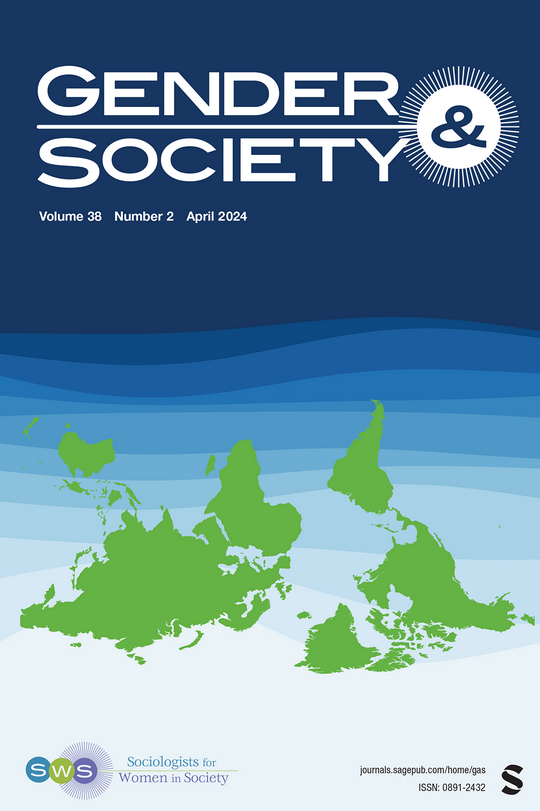当性别问责减少时会发生什么?COVID-19大流行期间非二元和性别融合者的经历
IF 7.2
1区 社会学
Q1 SOCIOLOGY
引用次数: 0
摘要
性别责任是如何变化的?我们的理论是,他人对个人性别的看法减少,或对性别责任的外部评估减少,为培养非二元主体性创造了更多空间。我们将 COVID-19 大流行的就地避难期作为一个自然实验,在此期间,工作和学校等主要社会机构发生了变化,从而改变了性别责任。通过对 22 位在这一时期公开自己是非二元或性别流体的美国成年人的不同种族样本进行访谈,我们研究了他们对这种性别责任变化的体验和理解。参与者描述了从无情的性别评估中解脱出来的经历,以及进行自我反思和性别实验的空间。在工作和学习中,外部评估的严格程度降低,特别是减少了对性别表达的持续的当面评估,产生了新的性别主体性,抵制了对性别的二元理解。本研究探讨了性别问责的细微差别、可变性和情景特征。我们认为,亲自进行的全身性别评估是性别问责的一个强有力的组成部分,而在工作和学习中摆脱性别问责可能会带来特别大的解放。本文章由计算机程序翻译,如有差异,请以英文原文为准。
What Happens when Gender Accountability is Reduced? The Experiences of Nonbinary and Genderfluid People During the COVID-19 Pandemic
How does gender accountability vary? We theorize that reduced perceptions by others of one’s gender, or reduced external assessments of gender accountability, create more space for the cultivation of nonbinary subjectivities. We use the shelter-in-place period of the COVID-19 pandemic as a natural experiment during which major social institutions such as work and school changed and thus shifted gender accountability. Through interviews with a racially diverse sample of 22 U.S. adults who came out as nonbinary or genderfluid during this time period, we examine their experiences and understandings of this change in gender accountability. Participants described relief from relentless gender assessments as well as space for self-reflection and gender experimentation. Less stringent external assessments at work and school, especially the reduction of constant in-person evaluations of gender expression, produced new gender subjectivities that resisted binary understandings of gender. This study explores the nuance, variability, and situational character of gender accountability. We argue that in-person full-body gender assessments are a powerful component of gender accountability and that relief from gender accountability at work and school may be particularly liberating.
求助全文
通过发布文献求助,成功后即可免费获取论文全文。
去求助
来源期刊

Gender & Society
Multiple-
CiteScore
9.70
自引率
3.60%
发文量
78
期刊介绍:
Gender & Society promotes feminist scholarship and the social scientific study of gender. Gender & Society publishes theoretically engaged and methodologically rigorous articles that make original contributions to gender theory. The journal takes a multidisciplinary, intersectional, and global approach to gender analyses.
 求助内容:
求助内容: 应助结果提醒方式:
应助结果提醒方式:


